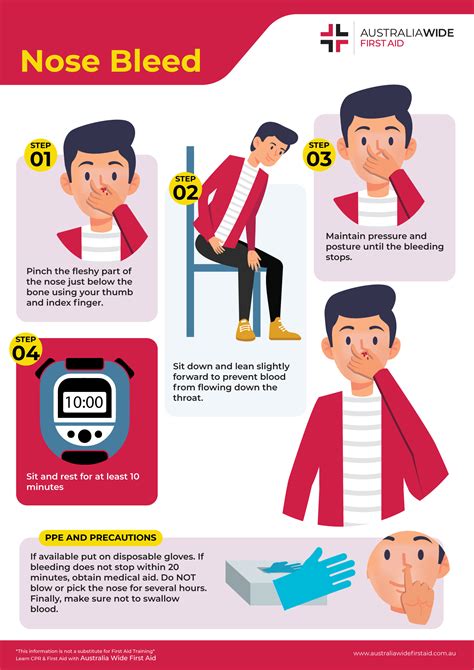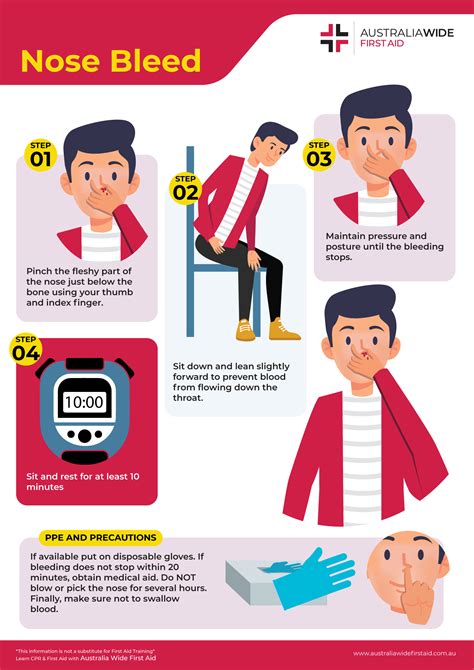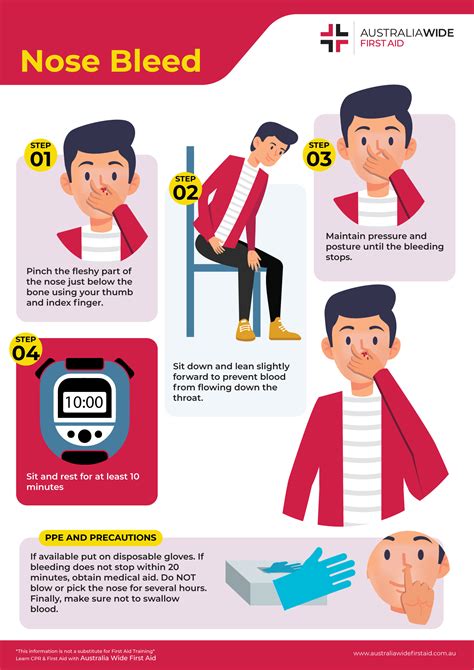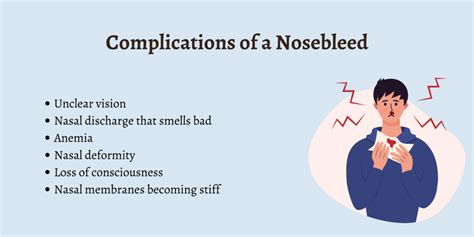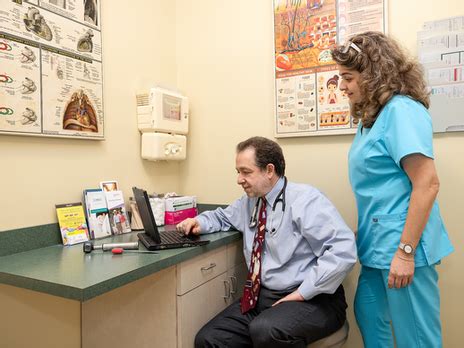Bleeding from the nose, also known as epistaxis, can be a frightening and unexpected experience. It can be caused by a variety of factors, including dry air, nose picking, allergies, or even a minor injury. When a nosebleed occurs, it's essential to know how to stop it quickly and effectively to prevent further complications. In this article, we will explore the best methods to stop a nosebleed, the underlying causes, and provide valuable tips to prevent future occurrences.
Nosebleeds can be classified into two main categories: anterior and posterior. Anterior nosebleeds occur in the front part of the nose and are the most common type, accounting for about 90% of all nosebleeds. Posterior nosebleeds, on the other hand, occur in the back part of the nose and are more severe, often requiring medical attention. Understanding the type of nosebleed you're experiencing is crucial in determining the best course of action to stop it.
Causes of Nosebleeds
Nosebleeds can be caused by a variety of factors, including:
* Dry air: Low humidity can dry out the nasal passages, making them more susceptible to bleeding.
* Nose picking: Picking or blowing your nose can cause irritation and bleeding.
* Allergies: Seasonal allergies or sinus infections can cause inflammation and bleeding in the nasal passages.
* Minor injury: A minor injury, such as a blow to the nose, can cause bleeding.
* Medical conditions: Certain medical conditions, such as high blood pressure, bleeding disorders, or tumors, can increase the risk of nosebleeds.
How to Stop a Nosebleed
To stop a nosebleed, follow these steps:
1. Remain calm: It's essential to remain calm and composed when experiencing a nosebleed.
2. Sit up straight: Sit up straight and lean forward to prevent blood from flowing down the back of your throat.
3. Apply pressure: Use your thumb and index finger to apply pressure to the soft part of your nose, just below the bridge. Apply firm but gentle pressure for 5-10 minutes.
4. Use a cold compress: Apply a cold compress or an ice pack to the bridge of your nose to help constrict the blood vessels.
5. Elevate your head: Elevate your head above the level of your heart to reduce blood flow to the nose.
Additional Remedies
In addition to the steps above, you can try the following remedies to help stop a nosebleed:
* Nasal sprays: Over-the-counter nasal sprays can help reduce bleeding and inflammation.
* Saline solution: Rinsing your nose with a saline solution can help moisturize the nasal passages and reduce bleeding.
* Petroleum jelly: Applying a small amount of petroleum jelly to the affected area can help protect the nasal passages and promote healing.
Preventing Future Nosebleeds
To prevent future nosebleeds, follow these tips:
* Use a humidifier: Dry air can dry out the nasal passages, making them more susceptible to bleeding. Using a humidifier can help maintain a healthy moisture level.
* Avoid nose picking: Nose picking can cause irritation and bleeding. Avoid picking or blowing your nose, especially when you have a cold or allergies.
* Use saline nasal sprays: Saline nasal sprays can help moisturize the nasal passages and reduce inflammation.
* Avoid irritants: Avoid exposure to irritants, such as tobacco smoke or strong chemicals, which can dry out the nasal passages and increase the risk of bleeding.
Nosebleed Complications
While most nosebleeds are not serious, they can lead to complications, such as:
* Anemia: Frequent or severe nosebleeds can lead to anemia, a condition characterized by a lack of red blood cells.
* Infection: Nosebleeds can increase the risk of infection, especially if the bleeding is caused by a bacterial or viral infection.
* Scarring: Repeated nosebleeds can cause scarring in the nasal passages, leading to breathing difficulties or other complications.
When to Seek Medical Attention
While most nosebleeds can be treated at home, there are instances where medical attention is necessary. Seek medical attention if:
* The bleeding is heavy or doesn't stop after 20 minutes of pressure.
* You experience difficulty breathing or swallowing.
* You have a fever or signs of infection, such as redness or swelling.
* You have a history of bleeding disorders or are taking blood-thinning medications.
Medical Treatment for Nosebleeds
If you seek medical attention for a nosebleed, your doctor may use the following treatments:
* Cauterization: A procedure where the doctor uses a special tool to burn the blood vessels in the nose to stop the bleeding.
* Nasal packing: The doctor may insert packing material into the nose to apply pressure and stop the bleeding.
* Medications: Your doctor may prescribe medications to help reduce bleeding and inflammation.
In summary, nosebleeds can be a frightening experience, but with the right knowledge and treatment, they can be stopped quickly and effectively. By understanding the causes, symptoms, and treatment options, you can take the necessary steps to prevent future occurrences and promote overall health and well-being.
What are the most common causes of nosebleeds?
+
Nosebleeds can be caused by a variety of factors, including dry air, nose picking, allergies, minor injury, and medical conditions.
How can I stop a nosebleed quickly?
+
To stop a nosebleed, remain calm, sit up straight, apply pressure to the soft part of your nose, use a cold compress, and elevate your head above the level of your heart.
When should I seek medical attention for a nosebleed?
+
Seek medical attention if the bleeding is heavy or doesn't stop after 20 minutes of pressure, you experience difficulty breathing or swallowing, or you have a fever or signs of infection.
We hope this article has provided you with valuable information on how to stop a nosebleed quickly and effectively. If you have any further questions or concerns, please don't hesitate to reach out. Share this article with your friends and family to help them learn more about nosebleeds and how to prevent them. By working together, we can promote overall health and well-being and reduce the risk of nosebleeds.
